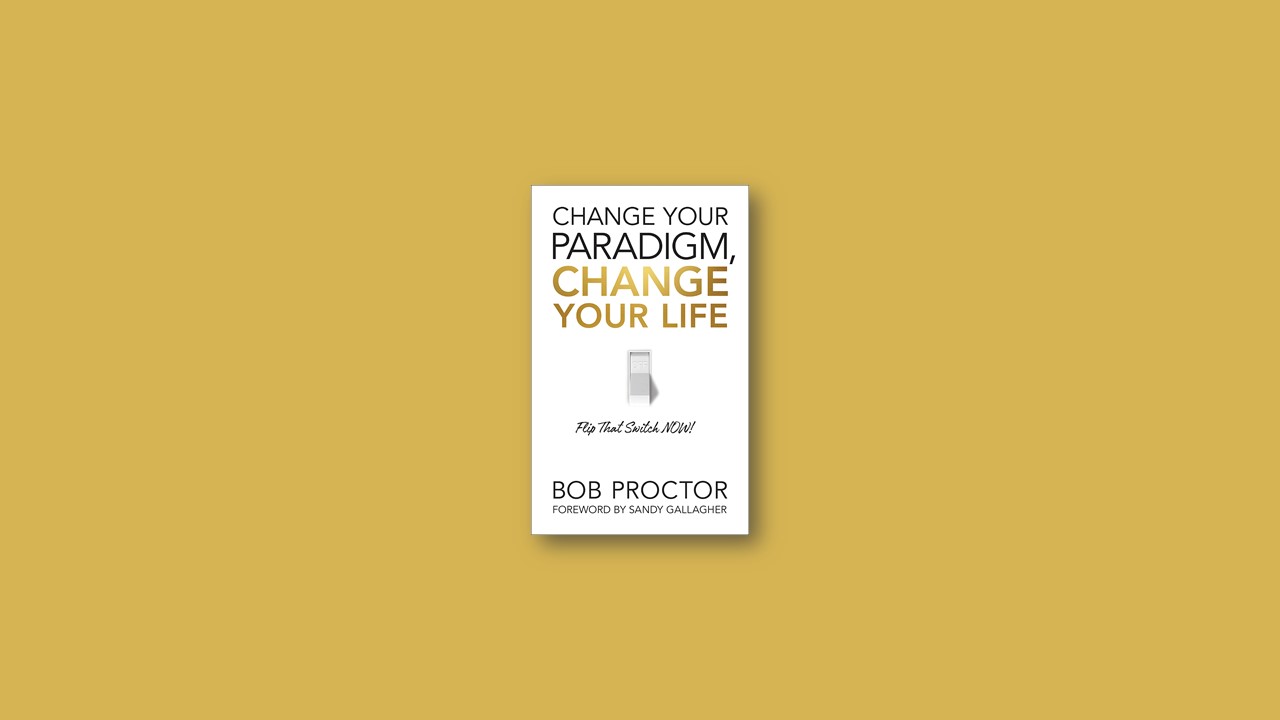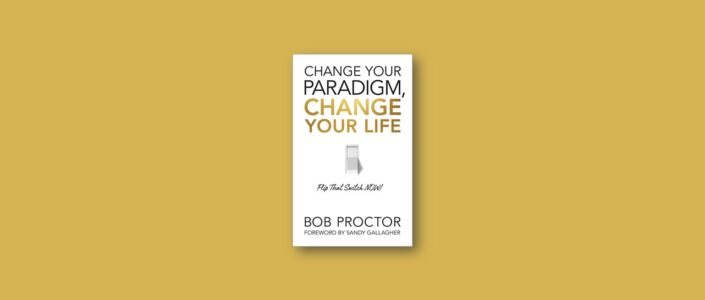Your Awesome Power to Change
Changing your paradigm takes a committed decision, because it goes in the opposite direction of nearly everything we’ve been taught. We go to school, take a book, read it, ask questions on the material, and then go on to another book. The truth is, we can’t possibly understand the contents of the book this way. Reading something once and moving on is not going to do it.
Our paradigm was built through repetition—constant, spaced repetition—and that’s the way it’s going to be changed. But this makes little sense to most people: they’re relating to the way they have been and the way they were educated in the past, when they weren’t really being educated at all; they were merely gathering information.
You’ll see people with very impressive degrees from prestigious universities who are struggling through their life. They don’t have enough money; they don’t hold down a good position. If they have their own company, they go bankrupt or go out of business. You think, “They’re so smart; how could this possibly happen?”
The truth is, they’re not very smart at all. They’ve gathered a lot of information, but they don’t use it. Their behavior is controlled by their paradigms, not by the information they’ve got. They’re not doing what they know how to do. For some strange reason, they never figure it out. They never stop and analyze their own behavior in relation to what they know.
Developing the Confidence to Change Your Paradigm
Confidence comes from knowledge. When people say they don’t have any confidence, that’s not completely true. They’re probably confident that they can get dressed, tie their shoes, and drive a car. They’re confident that they can do all kinds of things. When they don’t have the confidence to do something they’d really like to do, it’s because they don’t know how. The more you learn how, the more confidence you’ll have.
A lot of this worrying about what other people think starts early in life. When we were little kids, we would hear our parents say, “What would the neighbors think?” I’ve come to this conclusion: hopefully the neighbors do think, but what they think really doesn’t make any difference. Most people are concerned with what other people think. They shouldn’t be. They should be concerned with what they think of themselves.
We’ve got to take a look at how we’re living. Are we choosing our own path? Are we operating on an image of the kind of life we want and execute it, or are we just trying to get by as best we can day to day?
You’ve got to know where you are. Furthermore, you have to know where you’re going. Earl Nightingale’s definition of success is the best I’ve ever heard: “Success is the progressive realization of a worthy ideal.” An ideal is an idea that you’ve fallen in love with. You are progressively becoming aware as you’re moving towards the good you desire.
Paradigms and Cybernetics: Setting your Control System to Achieve Your Desired Results
A paradigm is like a cybernetic mechanism. Suppose a person is seventy pounds overweight and wants to lose weight. They’ve got to stick to a diet. They start on the diet and, sure enough, stick to it. They lose five pounds, then seven, then ten.
Then the person starts eating the food they’re not supposed to eat. What happened? The paradigm kicked in and took them back on their usual course. A diet is the start of writing a new paradigm, but people don’t see it that way. Because they don’t know how to write a new paradigm, they don’t really understand the force that they’re up against when they try to change their eating habits. Nine out of ten of them fail.
That’s why people keep going on and off diets. When they start to lose weight, they’re brought back on their usual course, and they’ll keep eating until they get up to being seventy pounds overweight again. The paradigm works exactly the same as the thermostat or the automatic pilot. It controls your behavioral patterns. It controls what you’re eating, your exercise, or whatever you’re doing.
When a person understands what a paradigm is and how it’s controlling them, they’re going to go on a diet and they’re going to start eating properly. They’re going to start controlling their body, because they see the body as an instrument of the mind: it obeys the operations of the mind. In his book As a Man Thinketh, James Allen wrote. “The body is a delicate and plastic instrument, which responds readily to the thoughts by which it is impressed, and habits of thought will produce their own effects, good or bad, upon it.”
The Paradigm for Power Performance
Here are some basic, simple rules: if you follow them, you win; if you violate them, you lose. There are three things that a person absolutely must lock into if they really want to set a higher goal and go after it. The first is decision. The second is understanding visualization, and the third is discipline.
We don’t become what we think, but we do become what we feel, because thinking is in the conscious mind, feeling is in the subconscious: that’s the universal side of our personality. It involves visualization; you have to see it fulfilled.
You’ve got to work from the end, not to it. When you’ve done that right, you’re on the right track; it’s only a matter of time until your goal manifests in form, because you’ve already accomplished it in your intellect and your emotional mind. No one, of course, knows what the gestation period for an idea is. That’s where faith comes in.
What you want is already here, if not in one state, then in another. Most people don’t understand that. They don’t understand that nothing is created or destroyed; everything is already here. That’s why Wernher von Braun told President Kennedy that all was required to land a man on the moon was the will to do it. The ways and means to accomplish our goals are already here. We just have to get in touch with them. When you make a decision, the only prerequisite is, do you want it?
Making Your Positive Paradigm a Habit for Life
There are two paths in life. The first is the path of ignorance. It inevitably leads to worry, doubt, fear, anxiety, depression, and ultimately disease and disintegration.
Ignorance is simply not knowing, but knowledge is omnipresent. There’s no need for a person to remain in ignorance. Unfortunately, our educational system is doing very little to teach the subjects we’ve been talking about. School does not teach you how to take control of your mind. School does not teach you how to respond rather than react. School does not teach you how to stay in a positive frequency or study the laws of the universe. School doesn’t teach us anything about paradigms.
The polar opposite of ignorance is knowledge. That’s the positive path. The knowledge is here and the only way to get to it is to study, but you have to know what to study. The libraries are full of knowledge, but knowledge in itself is not power. If it were, all the librarians would be multimillionaires. Most of them have nothing; they’re broke. The knowledge has to be organized and intelligently directed.
Your habits can lead you in either of these two directions: toward reinforcing the negative or reinforcing the positive. A habit is an idea that’s fixed in the subconscious mind. One paradigm says, don’t study. The other part says, study. You set up your habits, and you determine whether you’re going to develop good habits.
Implementing the ideas in this book is a matter of making a firm commitment, picking an accountability partner, and starting right away. Start today, not tomorrow; start right now. Commit the second you read these words. If you’re going to give thirty minutes a day, start right now. If you’ve just spent thirty minutes, spend another thirty. Then tomorrow morning do it again.
Go through this regimen for sixty or ninety days. Earl Nightingale used to say that if you do something for ninety days, you’ll probably do it for the rest of your life.


